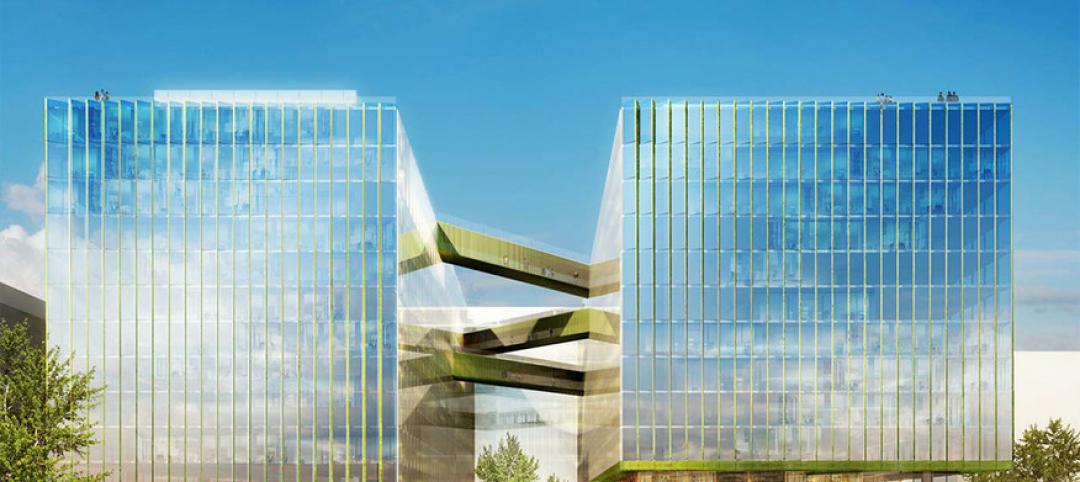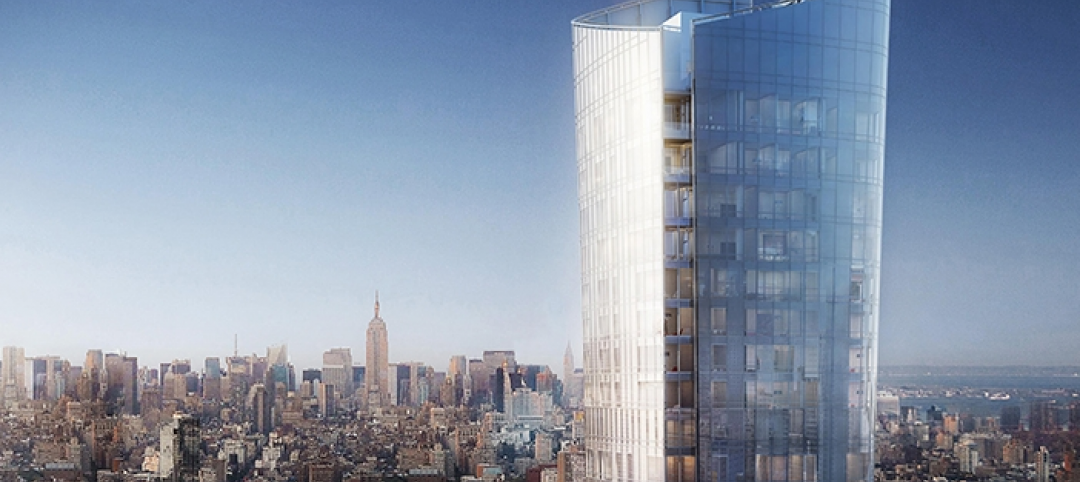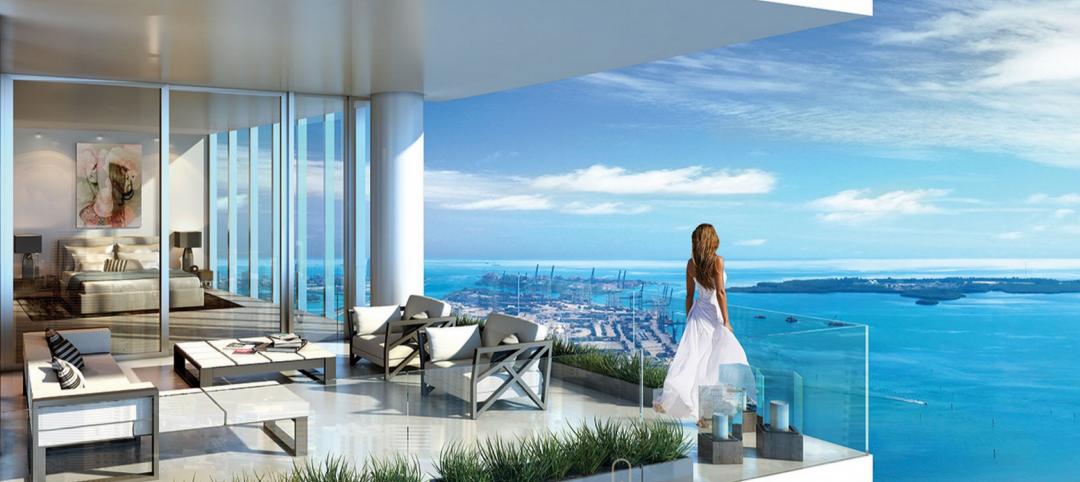This week, the Green Building Advisory Committee established by the General Services Administration (GSA), officially recommended to GSA that the LEED green building certification system be used for all GSA buildings as the best measure of building efficiency. The committee also conveyed that LEED should be the primary way to show how agency buildings use energy and water and that LEED standards are the most conducive to meet the Energy Independence and Security Act.
The Green Building Advisory Committee has evaluated more than 160 tools and systems since it began in 2011, and in February, GSA released a request for information (RFI) that publicly lauded the value of green building rating systems like LEED and asked for additional input into important issues that could help GSA accelerate and improve its green building work.
“GSA has been a leader in energy and sustainability, and we are thrilled to see the leaders in the public and private sectors continue to recommend LEED as the best choice for GSA to maintain its leadership status while improving sustainability, reducing energy and saving money for its buildings,” said Roger Platt, senior vice president of Global Policy & Law, USGBC. “Consensus-based and market-driven, LEED has been and continues to be invaluable to thousands of building professionals and remains the best option for the GSA and any governmental agency looking to save taxpayer dollars and increase energy efficiency.”
According to an article released this week by Federal News Radio, GSA received more than 400 comments from 162 stakeholders from all facets of the building and academic industries as well as local federal and local government agencies. The full list of comments will be released later this spring, but the recommendation to use LEED comes from a study of more than 160 tools and standards, which found only three of them addressed the entire building system.
“Every single time green building and LEED have been evaluated by our most prestigious institutions, like the National Academy of Sciences, the National Research Council and the National Laboratories, the practice or green building and LEED certification has been shown to save taxpayer dollars and increase energy efficiency,” continued Platt. “Lawmakers should see these repeated conclusions and continue supporting public sector use of LEED.”
A study done by The Pacific Northwest National Laboratory (PNNL) found that GSA LEED certified buildings used 25 percent less energy than the national average and cost 19 percent less to operate. GSA’s application of LEED has helped in the agency’s building efficiency efforts, and there are now more than 4,000 LEED certified government projects with another 8,000 in the pipeline as registered projects. A recent report from GSA shows the agency has successfully reduced its energy use by almost 20 percent since 2003 and water use by almost 15 percent since 2007.
In addition, in a letter to GSA in July of 2012, 1,260 companies from the green building industry opposed deviating from LEED in federal facilities because such a change would add cost to the building and leasing process across the building industry.
To see why LEED is the only rating system diverse and dynamic enough to continue to drive market transformation, check out our latest infographic that shows LEED in motion.
About LEED
As the most widely recognized and widely used green building program across the globe, LEED is transforming buildings, homes and communities in all 50 states and 135 countries. LEED guides the design, construction, operations and maintenance of nearly 50,000 projects worldwide, comprising 9.3 billion square feet of commercial and institutional construction space, and nearly 117,000 additional residential units. By using less energy, LEED-certified spaces save money for families, businesses and taxpayers; reduce carbon emissions; and contribute to a healthier environment for residents, workers and the larger community. Learn more at usgbc.org/leed.
About the U.S. Green Building Council
The U.S. Green Building Council (USGBC) is committed to a prosperous and sustainable future through cost-efficient and energy-saving green buildings. USGBC works toward its mission of market transformation through its LEED green building program, robust educational offerings, a nationwide network of chapters and affiliates, the annual Greenbuild International Conference & Expo, and advocacy in support of public policy that encourages and enables green buildings and communities. For more information, visit usgbc.org.
Related Stories
Office Buildings | Jul 29, 2015
Design plans for Fannie Mae’s new HQ revealed
The developer/owner, Carr Properties, envisions a 1-million-sf plus mixed-use center with a large retail pavilion.
Sports and Recreational Facilities | Jul 29, 2015
Milwaukee Bucks arena deal approved by Wisconsin state assembly
Created by Milwaukee firm Eppstein Uhen Architects and global firm Populous, the venue will be built in downtown Milwaukee. Its design draws inspiration from both Lake Michigan, which borders Milwaukee, and from aspects of basketball, like high-arcing free throws.
Contractors | Jul 29, 2015
Consensus Construction Forecast: Double-digit growth expected for commercial sector in 2015, 2016
Despite the adverse weather conditions that curtailed design and construction activity in the first quarter of the year, the overall construction market has performed extremely well to date, according to AIA's latest Consensus Construction Forecast.
University Buildings | Jul 28, 2015
OMA designs terraced sports center for UK's Brighton College
Designs for what will be the biggest construction project in the school’s 170-year history feature a rectangular building at the edge of the school’s playing field. A running track is planned for the building’s roof, while sports facilities will be kept underneath.
High-rise Construction | Jul 28, 2015
Work begins on KPF's 'flared silhouette' tower in Manhattan
The 62-story, 157-unit luxury condo tower widens at the 40th floor, resulting in a gently flared silhouette, accented by a sculpted crown.
Museums | Jul 28, 2015
MUST SEE: Zaha Hadid's latest museum project is built into a mountain
The museum, dedicated to legendary mountaineer Reinhold Messner, is embedded within Mount Kronplatz in northern Italy.
Smart Buildings | Jul 27, 2015
Perkins+Will imagines new opportunity for Atlantic City
The architecture giant believes it has a solution that could put Atlantic City’s existing infrastructure to good use—by turning the Jersey Shore city into a research center for climate change and coastal resiliency.
Retail Centers | Jul 27, 2015
Fish-shaped shopping mall designed for odd plot of land in China
The mall, in Qinshui, a city in China’s Shanxi province, will fit within the 250x30-meter dimensions surrounded by parallel roads and two converging rivers.
Performing Arts Centers | Jul 27, 2015
Vox Populi: Netherlands municipality turns to public vote to select design for new theater
UNStudio’s Theatre on the Parade received nearly three-fifths of votes cast in contest between two finalists.
Multifamily Housing | Jul 27, 2015
Miami developers are designing luxury housing to cater to out-of-town buyers and renters
The Miami Herald reports on several new multifamily projects, including the Paramount Miami Worldcenter, whose homes include maid’s rooms, larger terraces, boutique-size closets, and guest suites.

















